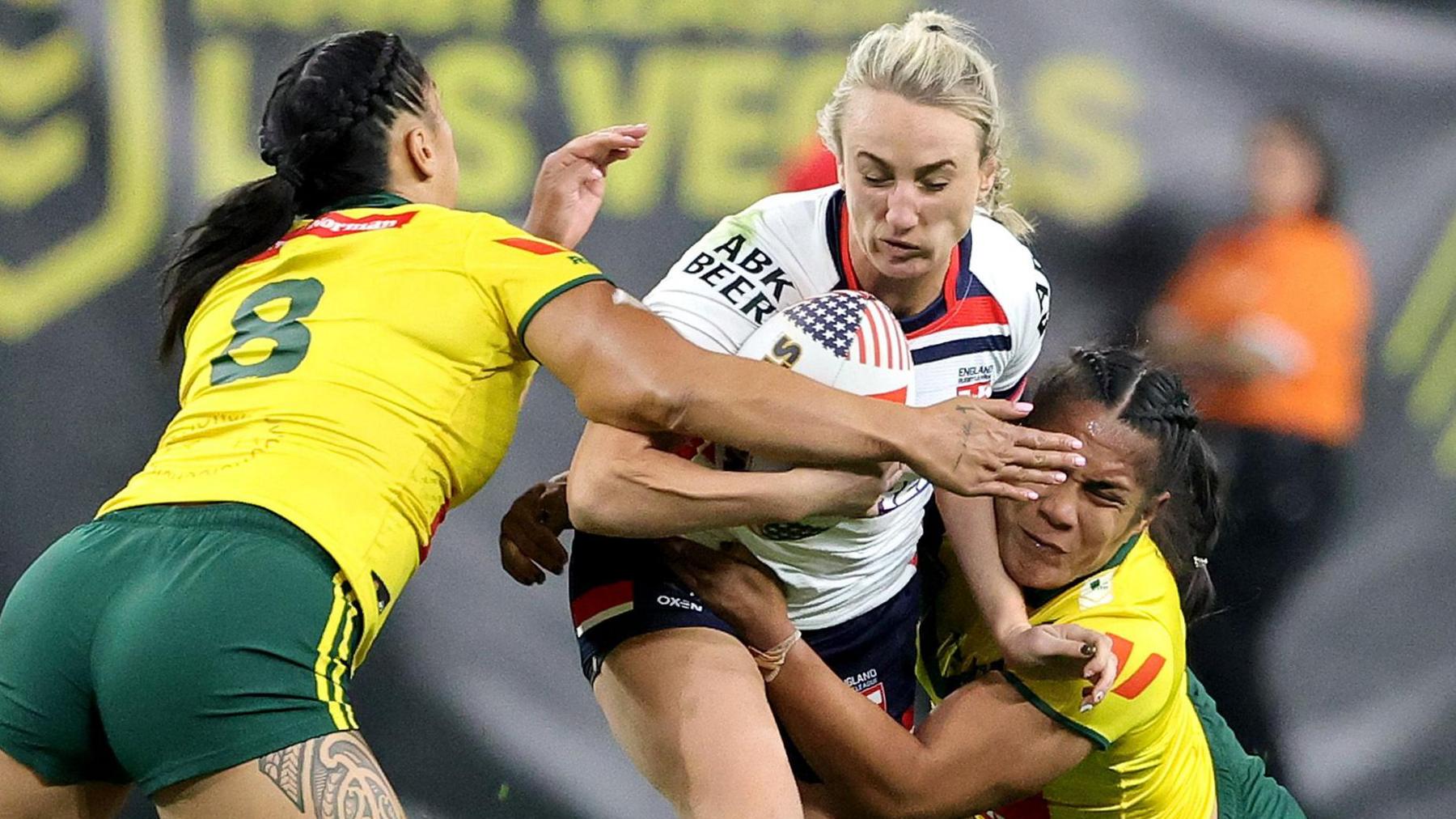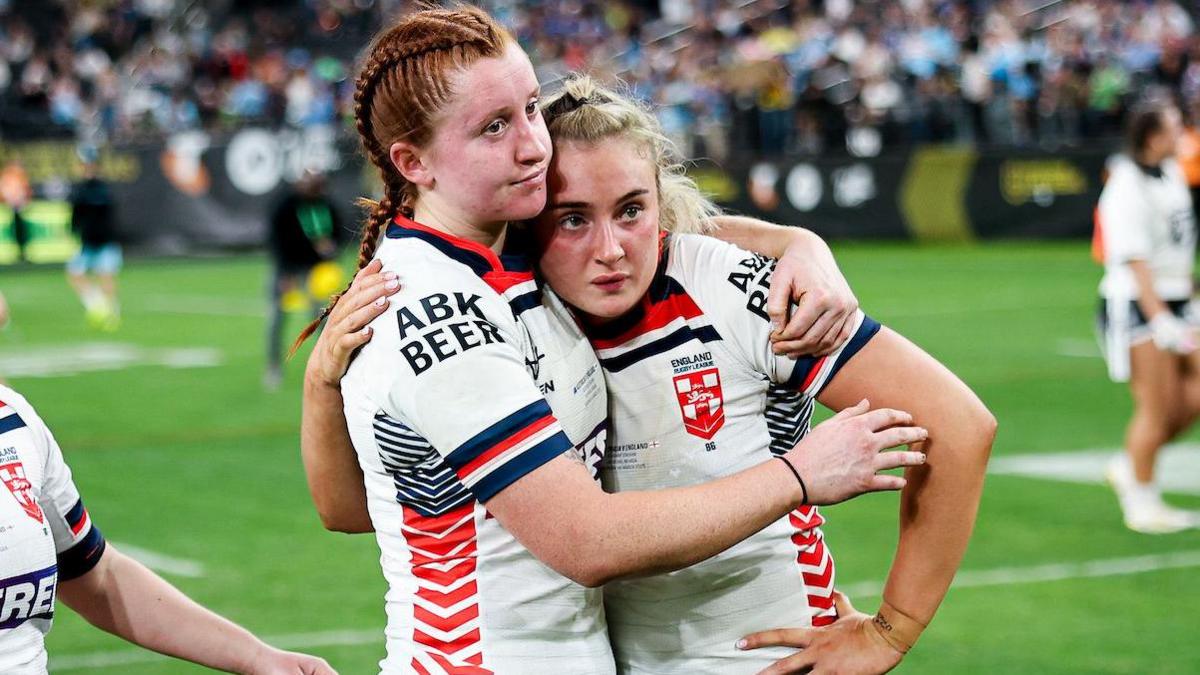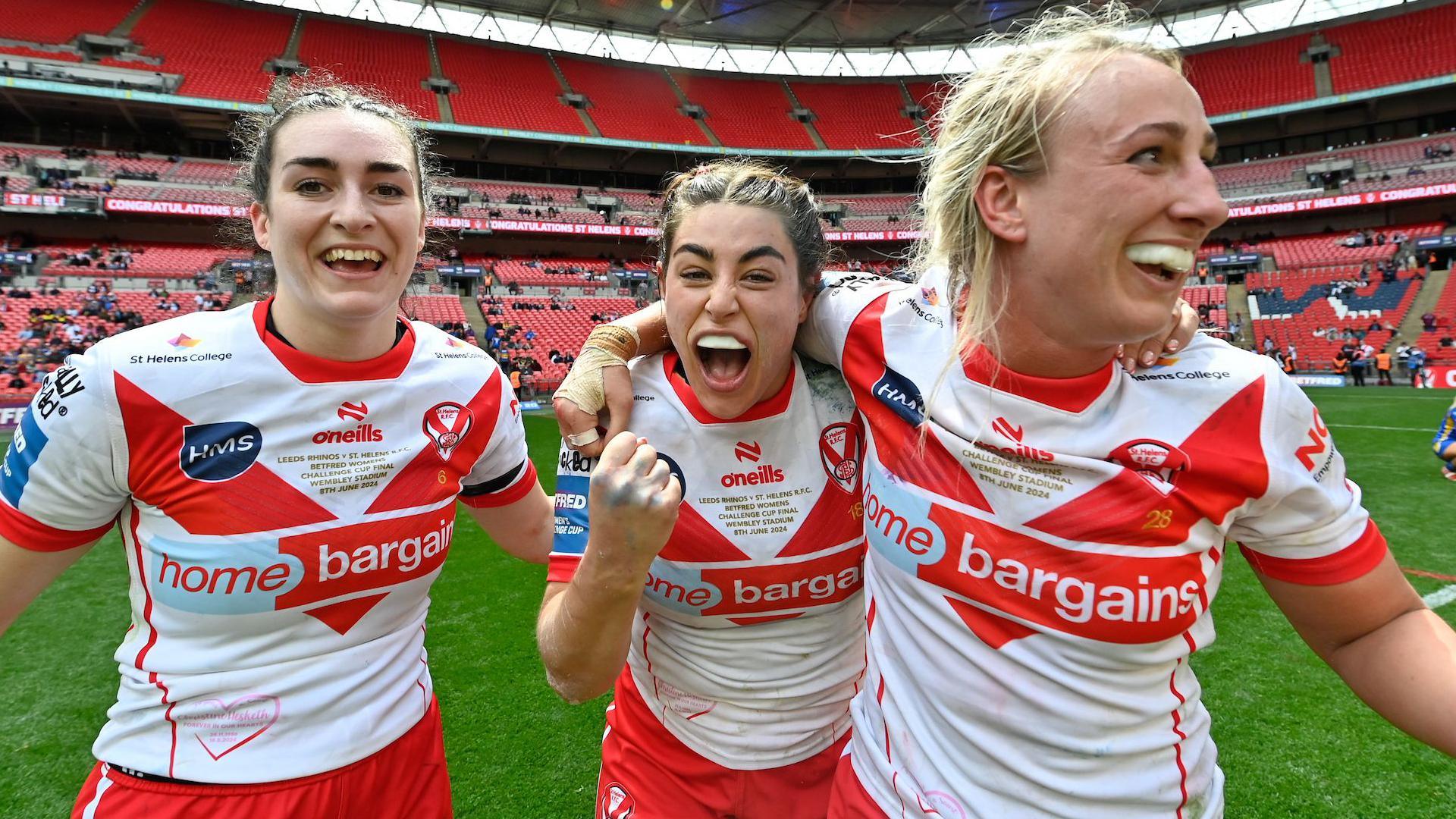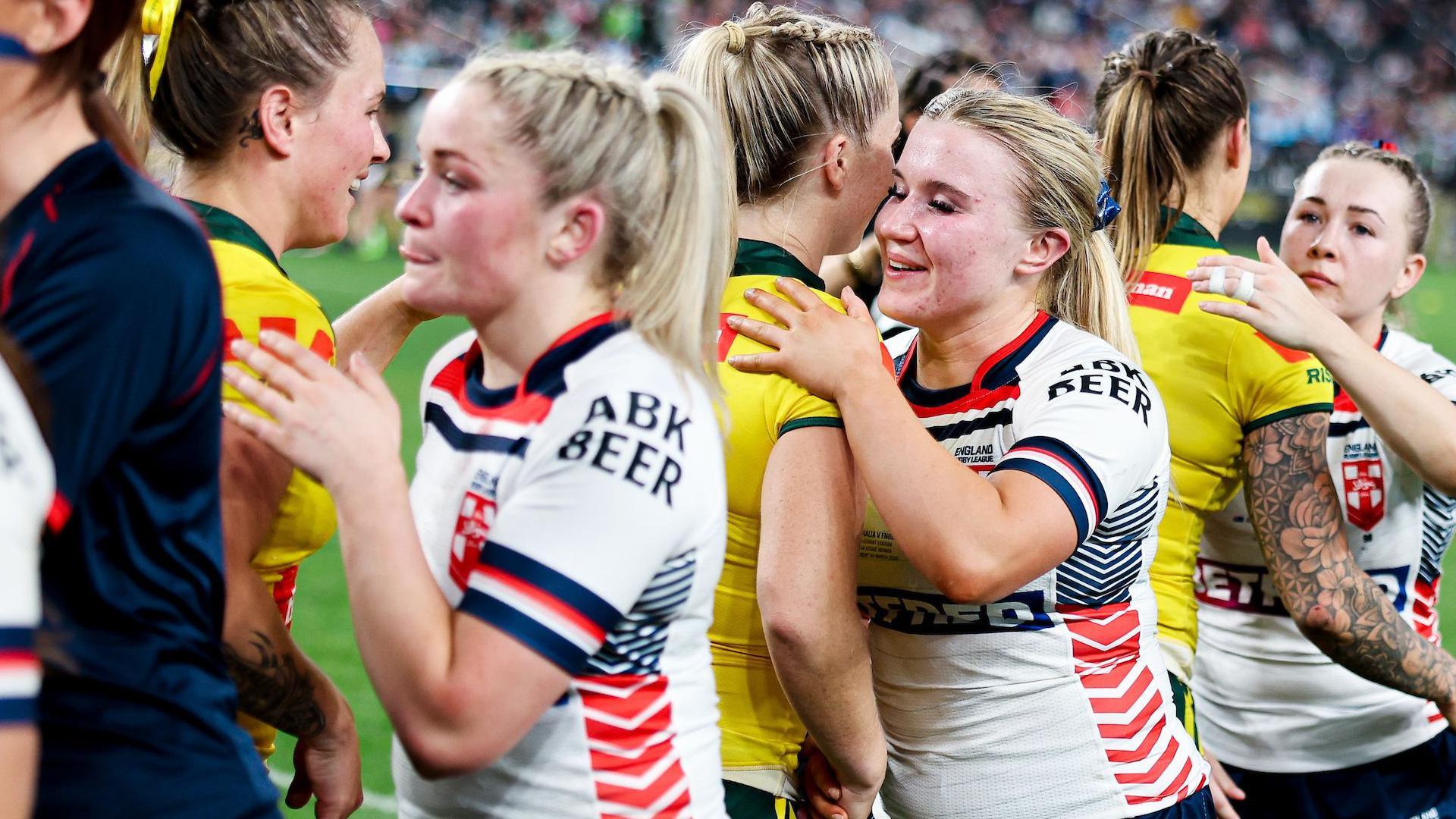England bid to move on from Australia thrashing - but against whom?

Jodie Cunningham was no stranger to playing Australia as a long-standing international but even her presence failed to spark England
- Published
'What happens in Las Vegas, stays in Las Vegas' - it's a saying well known to the millions of tourists who flock to Sin City each year.
For England's women rugby league players, there is no such luxury.
Their Vegas experience - a chastening 90-4 defeat by world champions Australia - was played out before a worldwide audience in March.
In the aftermath, there is doubt as to what comes next, whether a once-proposed tour by the Jillaroos will happen in tandem with the men, and how England can narrow the gap between the nations on the field.
While England's men have an autumn home series against Australia to prepare for, nothing has so far been announced for the women.
Adding to the sense of urgency is the need to prepare for the looming 2026 World Cup, to be played in the southern hemisphere.
England needed yardstick - Hardman

The expressions of Liv Wood and Paige Travis highlight just how chastening Vegas was for England
In preparing for World Cups and major Tests, one issue for England is the scarcity of northern hemisphere opposition to face on an equal footing.
The costs of attracting a touring nation such as Tonga or Papua New Guinea are prohibitive. Likewise the notion of making the trip south.
Tests against Wales and France have been won by big scores, and perhaps that made the size of England's Vegas defeat such a shock.
St Helens head coach Dec Hardman - who has worked with England internationals such as Vicky Whitfield and Jodie Cunningham for years at club level - was part of Stuart Barrow's staff for the trip to the USA.
And he believes it was the right decision to face the Jillaroos.
"The only way we were ever going to know where we're at was to play that fixture," Hardman told BBC Sport. "Was it the right time of year? Not quite sure. When is the right time?
"When you play that fixture, it does give you a reality check, but sometimes you need that, to go and make you hungry for what you're going to experience in 18 months' time.
"Ultimately, these girls could have a fixture with Australia on the Sunday, the Kiwis on a Wednesday, and Tonga, Samoa or Cook Islands the following week. So it's: How do we bridge that gap of being competitive?"
Hardman does not claim to have the answers, but believes part of the solution is to listen to the players.
"The big thing is the players having an opinion," Hardman added.
"It's important that they tell you how they're feeling because they are the ones living it.
"They give you the feedback, what their expectations are moving forward. Whether the Rugby Football League [RFL] can meet those expectations or not, I'm not sure.
"Certainly they should have a voice, for sure."
Disparities offer explanation for gap
Great strides have been made in women's rugby league, moving the sport from muddy, sometimes littered park pitches to Super League stadiums - and in the Challenge Cup, to Wembley.
Talent pools are being established by the take-up in rugby league at a grassroots level, teams are benefiting from an improvement in available facilities and players are being looked after on a more professional basis.
However, the sport is certainly not professional in the sense of fully-paid players making the game their vocation.
Players juggle work commitments with training, and while the top clubs are able to make some payments to players and consider contracts an option, that is not the case for the whole of the Women's Super League.
By contrast, the Australian National Rugby League women's division, branded NRLW, is a small yet professional league; the Australian players from New South Wales and Queensland, the two major states, compete in relentless State of Origin contests and are paid for doing so.
England players have begun to move south to join their club revolution, with Hollie-Mae Dodd, Georgia Roche and Paige Travis all recruited by NRLW clubs.
Rugby league's huge standing in New South Wales and Queensland has opened up commercial opportunities for Jillaroos players - and so Isabelle Kelly or Tarryn Aiken are just as likely to feature on a billboard as footballer Mary Fowler or cricketer Ellyse Perry.

Players such as Leah Burke, Emily Rudge and Jodie Cunningham have the opportunity to play at Wembley if they reach the Challenge Cup final
'It's like Saints men going to play Thatto Heath'
St Helens back-rower Emily Rudge - who missed out on the Vegas squad - has played for England since the age of 16, and is acutely aware of the disparities.
"Even the NRLW and the Women's Super League are vastly different," she told BBC Sport. "On the surface, it looks like we are massively professional. We're affiliated to Super League clubs but the fact of the matter is we all work full-time jobs and we train twice a week in the evening.
"It's not anywhere like Australia [in terms of set-up]. I was thinking in some ways it's like Saints men going to play Thatto Heath, who work full-time and train twice a week. What do you expect?
"You've got full-time professional athletes against women who are trying their best but unfortunately do not have the same resources that they have. It becomes mismatched straight away.
"Without that inside knowledge of being aware of that, it just looks like 90-4 is a huge scoreline. We're building. Every year the women's game gets better - but so are they."
Like Hardman, Rudge feels the game's governing body must be engaged for the women's game to improve.
Learning the lessons

Bella Sykes (middle England player) embraced her experience in Las Vegas, but not all her team-mates did
With a range of ages and personalities within the England camp, there were always going to be different responses to such a defeat.
Leeds Rhinos hooker Bella Sykes "loved" the experience of going to Vegas with the team and being drawn into the drama and excitement of the event.
While the match itself was a tough examination, it was also a learning curve.
"It's important for the staff and players to reflect on why we got that result," Sykes said. "But speaking wider, the RFL are looking at that in terms of reviewing the league, reviewing how the international programme works, and as long as we improve from it, then there are no dramas from the players' perspectives.
"The chat we had as a group in the last camp... the experience impacted players very differently, depending on age and experience.
"Players had different feelings around it. I'm still really positive about the whole experience, but I understand why some of the girls don't feel that way.
"The opportunity for them to speak out, and say what changes they feel needs to happen was inspiring as a young player coming through - to listen to the growth that is needed in the game."
At just 20, Sykes will be part of the next generation of England players hoping to drive the change, and make England more competitive against the dominant Jillaroos and their southern hemisphere counterparts.